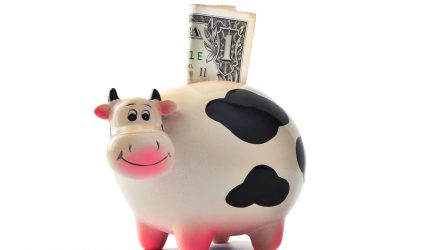Cash cow companies provide consistent cash flows and can help strengthen core investment allocations.
In the upcoming webcast, Cash Cows: A Simple Pacer ETFs Strategy for Complex Markets, Sean O’Hara, president of Pacer ETFs Distributors, will highlight the benefits of cash cow stocks and how they can enhance financial advisors’ client portfolios.
Specifically, investors who are interested in the free-cash-flow metric have several options to choose from. For instance, the Pacer Global Cash Cows Dividend ETF (GCOW), the Pacer US Cash Cows 100 ETF (COWZ), and the Pacer US Small Cap Cash Cows 100 ETF (CALF) all implement free cash flow yield screens to narrow their investing universes.
Focusing on companies with steady free cash flow can be a better approach to security selection than alternatives. Free cash flow is the cash left over after a company has paid expenses, interest, taxes, and long-term investments. It is used to buy back stocks, pay dividends, or participate in mergers and acquisitions. The ability to generate a high free cash flow yield indicates that a company is producing more cash than it needs to run the business, which can then be invested in growth opportunities.
Free cash flow companies generally have three defining characteristics — they are productive, reliable, and self-sufficient. The companies generate more cash flow than they spend, which allows them to grow without external financing. Free cash flow is a sturdy measure of profitability, which is, unlike earnings, not subject to manipulation and accounting assumptions. Lastly, as the companies are less reliant on capital markets for financing, they don’t dilute their issued company stocks.
“To better identify strong, healthy dividends payers, investors should look to FCF as a guide for a company’s strength and dividend-paying capacity. Since companies pay dividends with their cash, companies with high free cash flow are the best positioned to pay dividends,” according to Pacer ETFs.
“By accessing dividends through FCF yield, you may get exposure to companies with higher FCF, lower p/e, and lower payout ratios capable of supporting a higher dividend. This combination has resulted in significant outperformance vs. other dividend peers backed by stronger fundamental performance.”
Companies with free cash flow can also be more durable during the current period of elevated inflationary pressures.
“Without the backdrop of a recession and earnings dropping, corporate cash flows tend to keep pace with, or even outpace, inflation. That is particularly true when inflation increases and companies pass on higher costs to customers. An example is the ‘great inflation’ period in the 1970s when corporate net cash flow grew faster than inflation. In a scenario like this, long-term investors should consider equities as a store of value for inflation protection,” according to Pacer ETFs.
Financial advisors who are interested in learning more about the cash cows strategy can register for the Thursday, October 20 webcast here.
